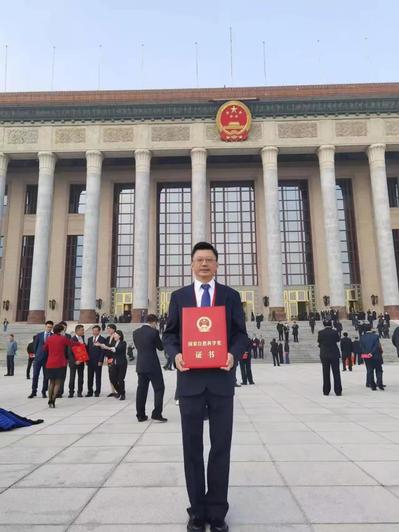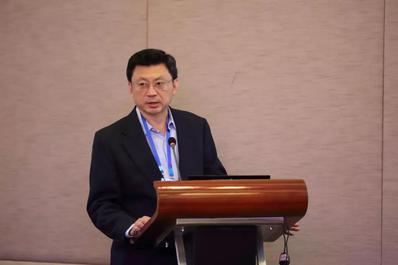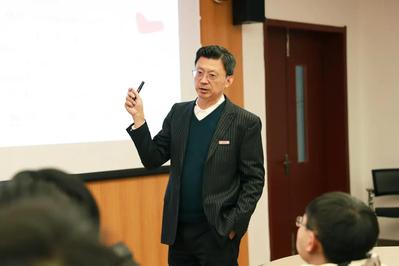Prof. Bao Gang Receives State Natural Science Award
Professor Bao Gang from School of Mathematical Sciences was honored with the second-class award of 2020 State Natural Science Award (SNSA) for his research project entitled Mathematical Theory and Computational Methods for Inverse Problems of Wave Equations on November 3, 2021 in Beijing. Congratulations!

The SNSA is one of five categories of awards under the State Science and Technology Awards organized by the State Council. As China’s most prestigious award in the field of natural science, the SNSA aims to reward individuals and organizations for academic excellence and scientific contributions in basic and applied research in natural science. This year, 2 project teams won the first-class award while 44 won the second-class award of the State Natural Science Awards.

Inverse problems for wave equations aim at determining the medium characteristics by the externally measured wave fields. They form an important research area in applied and computational mathematics and have broad and significant potential applications in geophysical prospecting, non-destructive testing, stealth technology, medical imaging, etc. Primary achievements of Professor Bao Gang’s project include:
1. For an inverse problem of the wave equation with caustics, a stability result was obtained for the first time by combining the Gaussian beam method and microlocal analysis. The approach suggested a new idea for analyzing inverse problems for the wave equation.
2. The well-posedness results and computational framework were established for multi-frequency inverse source problems. It overcame the ill-posedness and nonlinearity for single frequency data. A mathematical model for the inverse random source problem was introduced and analyzed. The regularity of the solutions was studied and new computational methods were developed.
3. By a delicate analysis of evanescent waves, the nonlinear relationship between the wave field and the perturbed interface was investigated. For the near-field imaging problem of non-local rough interfaces, stable and efficient numerical inversion algorithms were developed based on the fast Fourier transform. A novel recursive linearization algorithm using multi-frequency data was designed to achieve super-resolution imaging of multi-scale interfaces. For the scattering of large cavity problems, a stability estimate of the solution with explicit wavenumber dependence was proved for the first time.

Professor Bao Gang, former Dean of School of Mathematical Sciences (2010-2020), currently serves as Dean of Graduate School of Zhejiang University and Dean of Polytechnic Institute, Zhejiang University. He was the Founding Director of the Michigan Centre for Industrial and Applied Mathematics at Michigan State University. Prof. Bao Gang is a SIAM Fellow, AMS Fellow and Inaugural CSIAM Fellow. He is also an invited speaker for the International Congress of Mathematicians 2022 in St. Petersburg, Russia. His research interests include inverse problems for partial differential equations; diffractive, nonlinear, near-field, and nano optics; electromagnetic and acoustic wave propagation; applied and numerical analysis; multi-scale, multi-physics scientific computing. He has published over 160 papers in leading research journals including J. Ameri. Math. Soc., Arch. Rational Mech. Anal., J. Math. Pures Appl., Trans of AMS, Math. Comp., as well as Nature Nanotechnology.




